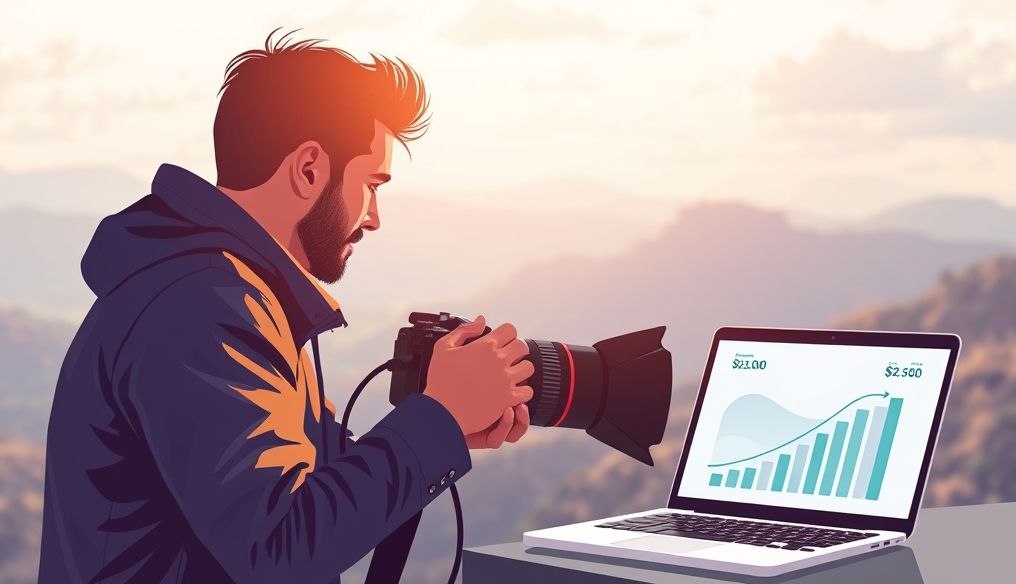How to Prepare for a Job Interview Successfully and Leave a Lasting First Impression?
A job interview is your golden opportunity to showcase your skills and abilities, and convince the employer that you are the ideal candidate. Good preparation is not just memorizing standard answers, but a deep understanding of the company, the job role, and your strengths. This article provides comprehensive strategies for optimal preparation, covering various aspects from research and preparation to appearance and effective communication.
1. In-Depth Research on the Company and Job Role
Before you step into the interview room, you should have a solid understanding of the company and the job role you are applying for. This is not just a quick browse of their website, but an in-depth research that makes you understand their vision, values, and market position.
1.1 Understanding the Company
- Website: Explore all sections of the website, from "About Us" to "News" and "Blog". Find out about the company's history, organizational structure, products or services, and future goals.
- Social Media: Follow the company's accounts on LinkedIn, Twitter, Facebook, Instagram. This will give you an idea of the company's culture, current projects, and interaction with customers and employees.
- News and Articles: Search for company news in search engines, newspapers, and specialized magazines. Learn about the latest developments, awards received, and challenges faced.
- Current and Former Employees: Connect with current or former employees via LinkedIn or your personal networks. Ask them about their experiences in the company, work culture, and growth opportunities.
1.2 Understanding the Job Role
- Job Description: Read the job description very carefully. Identify the main responsibilities, required skills, and essential qualifications.
- Keyword Analysis: Extract keywords from the job description. These keywords will help you formulate your answers and highlight the skills and experiences they are looking for.
- Anticipate Questions: Based on the job description, try to anticipate the questions that may be asked. Think of specific examples from your past experiences that prove you have the required skills.
2. Preparing Your "Success Stories"
Employers don't just want to hear that you have certain skills, they want to see proof of it. "Success stories" are specific examples from your past experiences that prove you successfully used your skills to solve a problem, achieve a goal, or overcome a challenge.
2.1 The STAR Method
The STAR method is a simple and effective framework for crafting success stories:
- Situation: Describe the situation or project you were working on. Be specific and provide the necessary details to understand the context.
- Task: Explain the task or goal you had to achieve.
- Action: Describe the actions you took to achieve the goal. Focus on your specific role and contribution to the project.
- Result: Explain the results that were achieved thanks to your efforts. Quantify the results with numbers whenever possible.
2.2 Examples of Success Stories
- Leadership: "In project X, I was the leader of a team of 5 people. We faced a challenge in meeting the deadline due to a lack of resources. I effectively distributed tasks, provided the necessary training to team members, and motivated them to work hard. In the end, we were able to complete the project on time and exceeded the client's expectations."
- Problem Solving: "In my previous job, I noticed a slowdown in the order processing process. I analyzed the process and discovered a bottleneck in a specific department. I suggested implementing a new system to automate the process, and I trained employees on how to use it. After implementing the system, the order processing time decreased by 30%."
- Communication: "In project Y, I had to communicate with various stakeholders, including clients, managers, and team members. I used effective communication skills to ensure that everyone understood the goals and expectations. I organized regular meetings, sent out periodic updates, and responded to everyone's inquiries in a timely manner. Thanks to effective communication, we were able to complete the project successfully and with the satisfaction of all parties."
3. Practicing Answering Common Questions
There are a set of common questions that are asked in most job interviews. Practicing answering these questions in advance will help you feel confident and prepared, and prevent you from stammering or hesitating.
3.1 Examples of Common Questions
- "Tell me about yourself." (Focus on your experiences and skills relevant to the job.)
- "What are your strengths and weaknesses?" (Mention real strengths, and choose one weakness and provide an example of how you are working to improve it.)
- "Why do you want to work at this company?" (Show that you have done in-depth research on the company and that you are passionate about its values and goals.)
- "Why are you the best fit for this job?" (Link your skills and experiences to the job requirements, and provide specific examples of how you can succeed in this role.)
- "Where do you see yourself in 5 years?" (Show your ambition and desire to grow and develop within the company.)
- "What are your salary expectations?" (Research the average salaries in the market for this role, and provide a reasonable range.)
- "Do you have any questions for us?" (Prepare a list of smart questions that show your interest in the job and the company.)
3.2 Tips for Practicing Answering
- Writing First: Write detailed answers to each of the common questions. This will help you organize your thoughts and identify the key points.
- Practicing Aloud: Practice answering the questions aloud in front of a mirror or with a friend or family member. Pay attention to your body language and tone of voice.
- Recording: Record yourself answering the questions. Listen to the recording and try to identify areas that need improvement.
- Simulation: Simulate a complete job interview with a friend or career mentor. Ask them to provide constructive feedback.
4. Paying Attention to Appearance and Body Language
First impressions are very important. Your appearance and body language send powerful messages about you before you even speak a word. Make sure you are sending the right message.
4.1 Appearance
- Clothing: Wear clothes that are appropriate for the job and the company. If you are unsure, it is better to dress more formally than necessary. Make sure the clothes are clean, ironed, and fit you well.
- Personal Hygiene: Pay attention to your personal hygiene. Shower, brush your teeth, style your hair, and trim your nails. Avoid wearing too much perfume or cologne.
- Accessories: Keep accessories simple and appropriate. Avoid wearing noisy jewelry or bulky watches.
4.2 Body Language
- Eye Contact: Maintain eye contact with the interviewer. This shows confidence and honesty.
- Handshake: Offer a firm but not overwhelming handshake.
- Posture: Sit up straight and maintain good posture. Avoid slouching or bending over.
- Smile: Smile genuinely. A smile makes you look friendly and approachable.
- Gestures: Use natural gestures to emphasize your points. Avoid overusing gestures or nervousness.
5. Arriving on Time and Logistical Preparation
Arriving on time shows your respect for the interviewer's time and your interest in the job. Logistical preparation ensures that you will not encounter any unpleasant surprises.
5.1 Advance Planning
- Location: Make sure you know the company's location and how to get there. Use Google Maps or another navigation app.
- Travel Time: Calculate the travel time accurately, and give yourself extra time in case of any unexpected delays.
- Transportation: If you are using public transportation, make sure you know the schedule. If you are driving, make sure you know where to park.
- Clothing: Prepare your clothes the night before. This will save you time and stress in the morning.
- Documents: Prepare all the documents you need, such as your resume, letters of recommendation, and certificates. Put them in a neat folder.
5.2 Interview Day
- Arrive Early: Try to arrive at the interview location 10-15 minutes before the scheduled time. This will give you time to relax and gather your thoughts.
- Reception: Be polite and friendly with the receptionist. Give your name and the reason for your visit.
- Waiting: While waiting, read a magazine or book. Avoid using your mobile phone or talking loudly.
6. Asking Smart Questions
Asking smart questions at the end of the interview shows your genuine interest in the job and the company. Good questions can leave a positive impression and help you make an informed decision.
6.1 Examples of Smart Questions
- "What are the biggest challenges the team is currently facing?" (This question shows that you are interested in contributing to solving problems.)
- "What growth and development opportunities are available in the company?" (This question shows that you are interested in building a long-term career.)
- "What is the work culture like in the company?" (This question helps you understand if the company is a good fit for you.)
- "What are the next steps in the hiring process?" (This question shows that you are interested in progressing in the process.)
- "How do you evaluate employee performance?" (This question helps you understand what is expected of you.)
6.2 Tips for Asking Questions
- Prepare in Advance: Prepare a list of questions you want to ask before the interview.
- Listen Attentively: Listen attentively to the interviewer's answers, and try to ask relevant follow-up questions.
- Avoid Questions That Can Be Easily Found: Avoid asking questions that can be easily found on the company's website.
- Avoid Questions About Salary and Benefits at First: Wait until the job is offered to you before asking questions about salary and benefits.
7. Following Up After the Interview
Following up after the interview is an opportunity to thank the interviewer for their time, reaffirm your interest in the job, and highlight any key points you missed during the interview.
7.1 Thank You Note
- Time: Send a thank you note within 24 hours of the interview.
- Channel: Send the thank you note via email.
- Content: Thank the interviewer for their time, mention the job you were interviewed for, reaffirm your interest in the job, and highlight any key points you missed during the interview.
- Proofreading: Make sure the message is free of spelling and grammatical errors.
7.2 Example of a Thank You Note
Dear [Interviewer Name],
I would like to thank you very much for the time you took to interview me for the [Job Title] position on [Interview Date]. I really enjoyed talking to you and learned a lot about [Company Name] and the team.
I would like to reaffirm my strong interest in the job, and I believe that my skills and experiences are perfectly suited to your requirements. I would also like to emphasize [Key point you missed during the interview].
Thank you again for this opportunity, and I look forward to hearing from you soon.
Sincerely,
[Your Name]
8. Evaluating Performance and Learning from the Experience
Whether you get the job or not, evaluating your performance in the interview is a valuable opportunity to learn and improve. Think about what you did well, and what you can do better next time.
8.1 Questions to Evaluate Performance
- What were my strengths in the interview?
- What were my weaknesses in the interview?
- What questions did I answer well?
- What questions could I have answered better?
- What mistakes did I make?
- What did I learn from this experience?
- What will I do differently next time?
By preparing well, paying attention to detail, and learning from experience, you can increase your chances of success in a job interview and get the job of your dreams.




